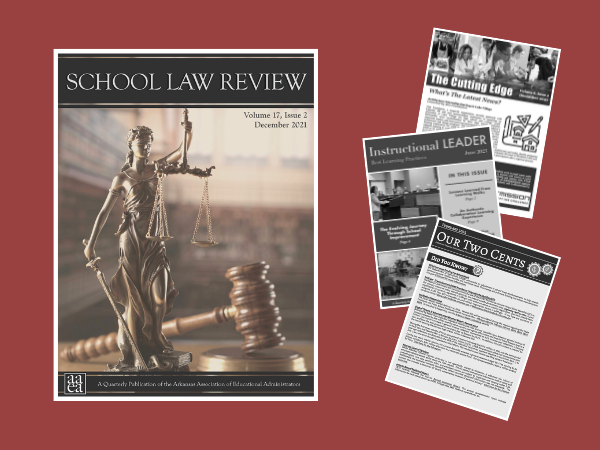
2 minute read
Publication Sneak Peek
School Law Review
This segment features content from other AAEA publications. School Law Review is a quarterly publication available to subscribing districts. The following excerpt comes from the March 2025 issue.
RECENT COURT CASES: FIRST & FOURTH AMENDMENTS
Moms for Liberty v. Brevard Pub. Schs., U.S. Court of Appeals for the Eleventh Circuit (Oct. 8, 2024)
A non-profit organization and three parents sued the district on grounds of First Amendment retaliation based on the school board’s repeated interruptions, silencing, and even removal of parents from meetings when they attempted to voice their concerns about school policies, curricula, or leadership when addressing the board during its public comment period. In one instance, the board interrupted a parent and prevented her from reading an excerpt from a book available in an elementary school library, ironically deeming the language too “obscene” to be read aloud. The board also silenced other parents for directing comments to specific board members or using innocuous phrases the board considered “abusive,” such as referring to the “liberal left.”
On appeal, the circuit court found that multiple board policies restricting speech at meetings violated the First Amendment rights of parents and community members, stating that the “government has relatively broad power to restrict speech in limited public forums – but that power is not unlimited. Speech restrictions must still be reasonable, viewpoint-neutral, and clear enough to give speakers notice of what speech is permissible. The Board’s policies for public participation at Board meetings did not live up to those standards.”
L.H. V. Indep. Sch. Dist., U.S. Court of Appeals for the Eighth Circuit (Aug. 2, 2024)
The parents of a student filed suit against the district alleging that their rights under the First Amendment and the 14th Amendment were violated when the district implemented its policy removing material in the school library after receiving a challenge to that material, pending a formal review process.
The lower court dismissed the claim and the circuit court affirmed, finding that the parents’ claims did not identify any conduct in which their child intended to engage that was arguably proscribed by the automaticremoval policy, and the parents failed to satisfy the requirements of pre-enforcement review, as they did not show circumstances that rendered the threatened enforcement sufficiently imminent.
Interested in more from School Law Review? Contact our office at 501-372-1691.








